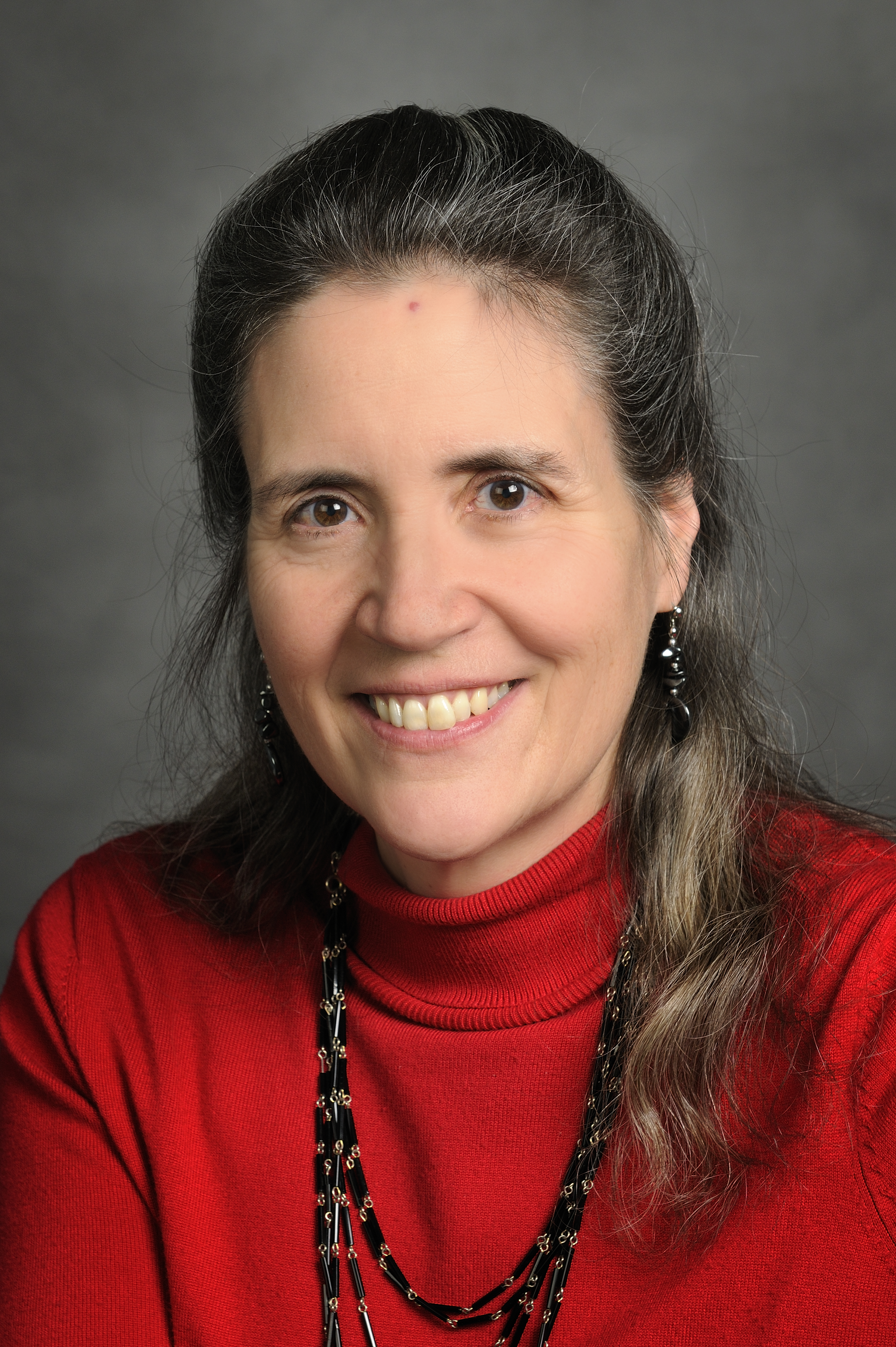Kathleen Hancock receives 2015 XCaliber Award

Kathleen Hancock, associate professor of civil and environmental engineering in the College of Engineering at Virginia Tech, National Capital Region, received the university's 2015 XCaliber Award for an individual making extraordinary contributions to technology-enriched active learning.
Established in 1996 by the Office of the Provost, the XCaliber Award (shorthand for exceptional, high-caliber work) is presented annually by Technology-enhanced Learning and Online Strategies to recognize individual faculty members or teams of faculty and staff who integrate technology in teaching and learning. The award celebrates innovative, student-centered approaches.
This year’s individual award recognizes Hancock’s multidisciplinary course, GIS Applications in Civil and Environmental Engineering, which prepares students to use geospatial information and analyses to solve professional problems in engineering, planning, and related fields.
The course introduces students to basic GIS concepts in geospatial data structures, geodetic datums, map projections and coordinate systems, databases, topology, and spatial queries/analysis for solving problems and improving decision-making.
The course is offered online through three components. The first is the scheduled online class through WebEx, which requires student participation at a specified time each week. This time is used for lecture and discussions, questions and answers, and group discussion of class assignments.
The second component is ESRI’s virtual course, Learning ArcGIS Desktop. ESRI is a company that develops GIS software. Each student receives a unique access code and is responsible for completing specific sections before each class as indicated by the syllabus, giving them hands-on learning experience with the GIS software.
The third element of the course consists of wiki interactions. Through the course wiki site, students review an article, website, application, or related document and then integrate their individual critiques into a comprehensive group discussion about the posted item.
“It is helpful when the instructor provides background material and explanation and then gives assignments that not only test the material presented but also allow for expansion of the knowledge through application and extension of the material,” wrote one student in an evaluation of Hancock’s course.
“She gave plenty of examples and venues to learn the material,” wrote another student in an evaluation of the course. “She used practical examples and assignments. Using professional-type assignments definitely made the material more relatable.”
“My philosophy and corresponding goal is to enable an active learning environment,” said Hancock. “Current technology, instant access to information, enhanced visualization and communication tools, hand‐held devices, and crowd and cloud capabilities open up a host of new opportunities to provide structured and unstructured learning opportunities.”
A member of the Virginia Tech community since 2004, Hancock’s scholarship focuses on freight operations and planning, transportation safety, and geospatial solutions to transportation problems. She received her bachelor’s degree from Colorado State University and a master’s degree and Ph.D. from Vanderbilt University.
Dedicated to its motto, Ut Prosim (That I May Serve), Virginia Tech takes a hands-on, engaging approach to education, preparing scholars to be leaders in their fields and communities. As the commonwealth’s most comprehensive university and its leading research institution, Virginia Tech offers 240 undergraduate and graduate degree programs to more than 31,000 students and manages a research portfolio of $513 million. The university fulfills its land-grant mission of transforming knowledge to practice through technological leadership and by fueling economic growth and job creation locally, regionally, and across Virginia.




